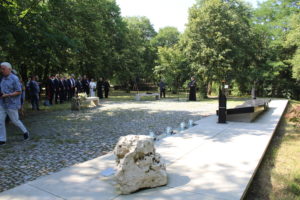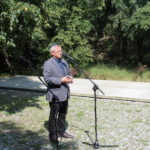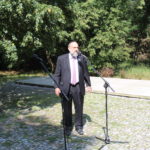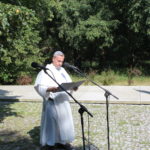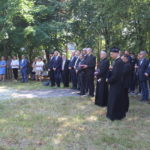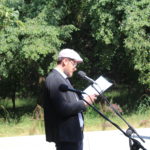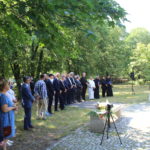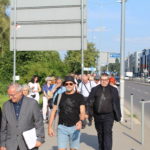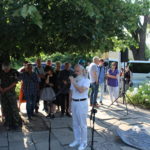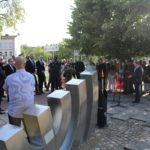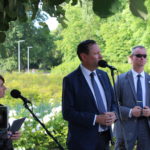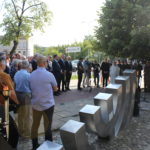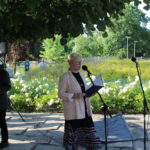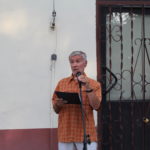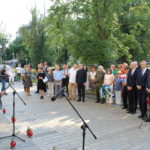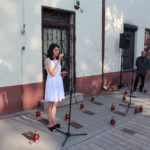The commemoration of the 77th anniversary of the Kielce pogrom began with an interfaith prayer at the grave of the victims at the Jewish cemetery in Pakosz. Andrzej Białek, vice president of the Association, spoke about the dual dimension of the grave, which was renovated in 2010: the broken Star of David speaks of the tragic end of the community of Kielce Jews, while the boulder from Jerusalem is a symbol of hope.
– It is very important that we are here together. We can’t change the way things were, we can change the way we remember, we grieve, we pray together,” said Poland’s Chief Rabbi Michael Schudrich, introducing the prayer. In turn, Rev. Hieronim Wróblewski, secretary of the Episcopal Committee for Dialogue with Judaism, read out the words of Archbishop Grzegorz Rys, chairman of the committee, addressed to the participants in the ceremony. – As we commemorate another anniversary of the events that for many years became a stumbling block in the relationship between the two peoples, inhabiting one place for hundreds of years, we put our hope in God, that it is He who will give salvation to the dead and restore peace to us, and to Poland the name with which the first Jews called it: “Polin” – “here you can rest”. – wrote the archbishop. The prayer was also recited by Rabbi David Szychowski of Lodz, Father Maciej Biskup, Father Rafal Dudala and Father Jacek Kopeć, representing the Bishop of Kielce.
The second part of the ceremony was the March of Remembrance and Prayer, which began at the “Menorah” monument. Malgorzata Kowalewska, vice-president of the Jan Karski Association in Kielce, recalled that, as every year, we come to the tenement at 7 Planty Street to recall from the darkness the names and surnames of the victims of the pogrom. – People who survived the nightmare of the war days and found death here at the hands of their neighbors. We bring back from oblivion this inconvenient and difficult truth, lest we forget, lest we get used to it,” she appealed.
Also speaking at the monument were Bogdan Wenta, President of Kielce, Israeli Ambassador Y. E. Yaakov Livne, Chief Rabbi of Poland Michael Schudrich and Chairman of the Jewish Community in Katowice Włodzimierz Kac. – Dozens of Jews were murdered, this time by their neighbors. Because they were Jews. This was a dramatic event for Jews who survived the Holocaust, for Jews who lived in Poland and in Kielce. They understood that Poland was not a country where they could continue to live,” said Ambassador Liwne. Włodzimierz Kac stressed that the history of the pogrom shows what the consequences of rumors and “fake news” can be, something we should be particularly aware of in the current international situation.
The participants of the ceremony then walked to the tenement at Planty 7, the site of the crime. There, tombstone inscriptions describing the events of 77 years ago and the names of the victims were read out in three languages. Those gathered lit candles at the nameplates placed in the sidewalk in front of the tenement. Actor Andrzej Cempura read a poem in connection with this year’s anniversary by Bogdan Bialek, founder and until recently president of the Jan Karski Association, who this year for the first time in more than twenty years did not lead the March of Remembrance and Prayer:






